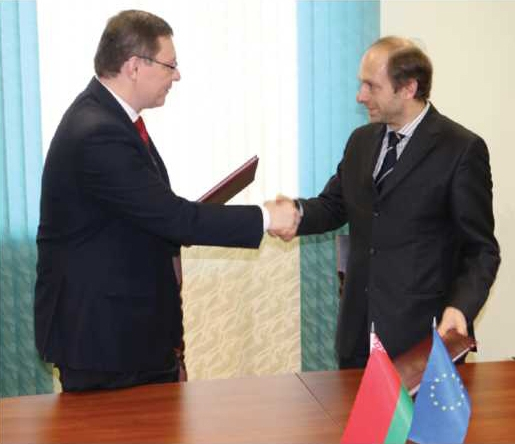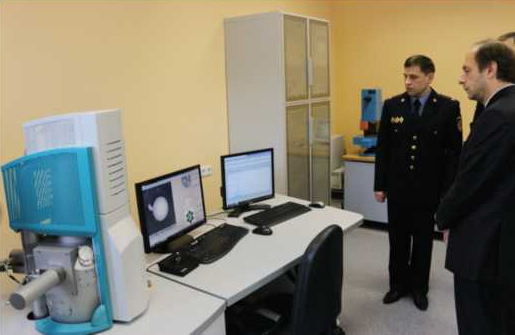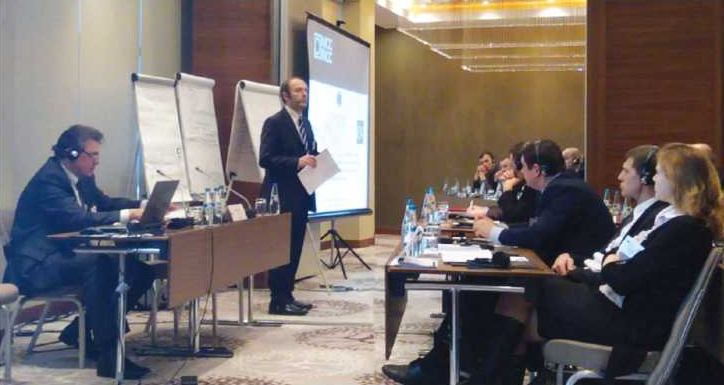February 4, 2016 the Chairmen of the European Network of Forensic Science Institutes (ENFSI), Director General of the National Institute of Criminalistics and Criminology of the Kingdom of Belgium – Jan De Kinder visited the State Forensic Examination Committee, where he discussed prospects for further cooperation with the Chairman of the Committee – Andrei Shved. Both sides reached an agreement to intensify collaboration between the State Forensic Examination Committee and ENFSI.

During the visit, Jan de Kinder was provided with the information on the activity of the State Forensic Examination Committee, on the working experience of single joint structure organization of forensic experts. He got acquainted with the methods of the study of drugs and flammable materials, the work of the Scientific and Practical Center of the Committee and forensic medical laboratories of the Committee.

As the result of the meeting, Jan De Kinder concluded: "The European Forensic Institutes Network is constantly working to improve the quality of the research. And in Minsk recently in this direction was made very much, I visited several laboratories and was impressed by what I saw. I am confident that our cooperation will be mutually beneficial."
Jan De Kinder's visit to Belarus was associated with carrying out in Minsk on 4 and 5 February 2016 Seminar on ENFSI activities and to ensure the quality of forensic examinations. It was organized by ENFSI and the State Forensic Examination Committee within technical assistance program (TAIEX). Representatives of the leading expert institutions in Belgium, UK, Germany, Estonia and the Netherlands have presented to Belarusian experts reports on topical aspects of forensic activities.

During the first day the participants of the seminar got acquainted with the activities of the Quality and Qualification Committee of the ENFSI, the requirements to ensure the quality of the ENFSI members’ activity, the recommendations of the expert validation techniques. The role of guidelines for best practices and standard operating procedures was highlighted. The main documents of the quality management system of the expert institutions were presented. On he second day presentations were focused on the evaluation of uncertainty measurement in laboratories, accreditation experience of expert institutions in different countries - members of the European Union. Also ENFSI made recommendations on interlaboratory comparisons and proficiency testing. The participants of the seminar were provided with the information on the practice of creating a management system in the expert institutions.
The event was highly appreciated by all sides, which are interested in further cooperation.
